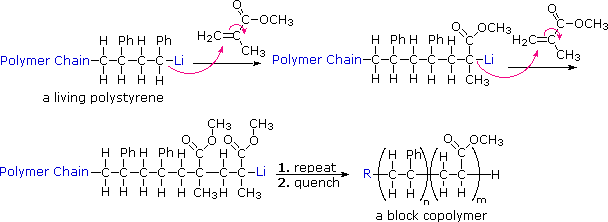High-Performance Polymers: Advanced Products for Sector
High-Performance Polymers: Advanced Products for Sector
Blog Article
Exploring the Varied Applications and Benefits of Polymers in Different Industries
Polymers, with their diverse variety of properties and functionalities, have actually come to be vital in various industries, each reaping distinct take advantage of their application. Polymers. From improving security and performance in the automobile industry to transforming medical tools in the medical care sector, polymers play a crucial duty. In addition, their eco-friendly nature is modifying the landscape of sustainability methods. As we delve into the depths of polymers in electronics, we reveal sophisticated innovations, while their structural stability transforms the realm of building and facilities. The pervasive impact of polymers across industries is a testimony to their versatility and flexibility, forming the future of numerous sectors.
Automotive Market Applications
Polymers play a pivotal duty in enhancing the efficiency and longevity of different parts within the automobile industry. These versatile materials are extensively used in the production of different parts, varying from interior elements to under-the-hood applications. One noticeable use of polymers in the auto industry is in the manufacturing of lightweight elements. By changing typical metal parts with polymer-based options, vehicles can accomplish better fuel performance without jeopardizing on toughness or safety.

Medical Care Industry Benefits
In numerous health care applications, the advantages of using polymers are commonly acknowledged for their varied range of helpful homes. Polymers play a crucial function in the health care market because of their adaptability, biocompatibility, and cost-effectiveness. One of the main benefits of polymers in health care is their capability to be tailored to particular needs, such as adaptability, sturdiness, and biodegradability, making them excellent for a wide variety of clinical applications.
Polymer-based materials are extensively used in medical tools, such as catheters, implants, prosthetics, and medicine shipment systems, because of their biocompatibility and ability to mimic natural tissues. These products can minimize the danger of allergies or beings rejected, improving individual safety and end results. In addition, polymers are lightweight, making them suitable for wearable clinical gadgets and making certain individual comfort.
In addition, polymers allow the growth of innovative therapy techniques, such as hydrogels for cells engineering and nanocomposites for targeted medication delivery. Their simplicity of handling and sanitation makes them vital for keeping high standards of health in healthcare settings. On the whole, the diverse benefits of polymers contribute dramatically to developments in clinical innovation and patient treatment.
Environmental Advantages of Polymers

Additionally, polymers can contribute to energy cost great site savings due to their lightweight nature. In industries such as transportation, lightweight polymer products can aid reduce gas intake and greenhouse gas exhausts. Additionally, polymers can enable the development of energy-efficient items such as insulation materials that enhance power preservation in structures.
Additionally, polymers play a crucial role in decreasing water pollution. The use of polymer-based filtration systems can effectively get rid of pollutants and contaminants from wastewater, safeguarding water sources and environments. Generally, the environmental benefits of polymers make them valuable properties in advertising sustainability and eco-friendly methods across various sectors.
Polymers in Electronic Devices and Modern Technology
Taking into consideration the enhancing demand for cutting-edge and sustainable options in contemporary industries, the integration of advanced polymer modern technologies in the world of electronics and modern technology has emerged as an essential method for driving effectiveness and efficiency. Polymers have revolutionized the electronic devices industry by making it possible for the production of lighter, more adaptable, and resilient digital devices. From smart devices to medical tools, polymers play a critical role in boosting product style and functionality.
One considerable advantage of polymers in electronics is their shielding residential or commercial properties, which aid safeguard fragile digital components from ecological factors and electric interference. In addition, polymers are necessary in the growth of versatile display screens, wearable innovation, and printed electronics, providing countless possibilities for producing clever and interconnected tools.
Furthermore, the use of polymers in digital product packaging has actually brought about developments in miniaturization and thermal monitoring, boosting the total performance and integrity of electronic systems. As innovation remains to develop, the convenience and adaptability of polymers will definitely drive even more development in the electronics market, forming useful source the future of modern technology.
Duty of Polymers in Construction and Infrastructure
Polymers offer numerous benefits in the building industry due to their convenience, longevity, and cost-effectiveness. One key role of polymers in building and construction is their use in finishes and sealants, offering protection versus environmental variables such as dampness, UV radiation, and rust.
Additionally, polymers play check this site out a vital role in sustainable construction techniques by allowing the development of energy-efficient frameworks. Insulating products made from polymers aid regulate interior temperatures, lowering the requirement for home heating and cooling systems and inevitably reducing power usage. Furthermore, the use of polymer-based composites in infrastructure tasks such as bridges and roads improves their longevity and decreases upkeep expenses. Generally, the incorporation of polymers in building and construction and infrastructure displays their substantial influence on modern design practices.
Verdict
In verdict, polymers play an essential duty in various industries such as vehicle, health care, environmental, electronic devices, and building and construction. From boosting gas effectiveness in cars to boosting clinical gadgets, polymers offer countless benefits.
Report this page